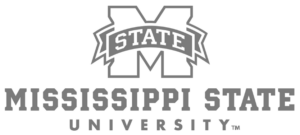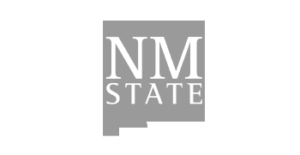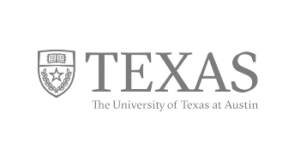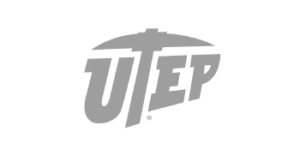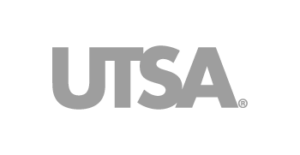National Science Foundation
Press Release 12-050
Second round of public-private innovation awards granted to 25 teams around the country
As part of a continuing effort to identify emerging technology concepts that have potential to transition into economically viable products, the National Science Foundation (NSF) has selected 25 teams for the spring 2012 class of the NSF Innovation Corps (I-Corps).
Spanning a broad range of potential products, research areas and regions, the teams will receive guidance from private- and public-sector experts, participate in a specially designed training curriculum, and receive $50,000 grants to begin assessing the commercial readiness of their technology concepts.
“Earlier I-Corps teams are well on their way to commercializing their technologies,” said I-Corps program officer Errol Arkilic. “A number are already building their teams and new partnerships, and they are obtaining license agreements and negotiating third-party financing.”
The awards will draw on discoveries previously supported by five NSF directorates: Biological Sciences; Computer and Information Science and Engineering; Engineering; Mathematical and Physical Sciences; and Social, Behavioral and Economic Sciences.
These awardees will begin the in-depth NSF I-Corps curriculum on March 20, 2012, with a workshop at Stanford University.
This year, the I-Corps program will select approximately 100 teams to assess the commercial viability of their proposed innovations, all built upon a foundation of NSF-supported basic research. The program has begun accepting inquiries for the round of awards to begin in July 2012.
For more on the Innovation Corps, see the NSF Special Report outlining the program.
This spring, I-Corps awards will support the following teams:
1237246, I-Corps: Biodegradable Elastomers I-Corps Proposal
Valerie Ashby (ashby@email.unc.edu), University of North Carolina, Chapel Hill, N.C.
1237216, I-Corps: Assessment of Nanostructured Palladium on Carbon Catalysts
Martin Bakker (bakker@bama.ua.edu), University of Alabama, Tuscaloosa, Ala.
1237252, I-Corps: Bacterial strains based on the separatome of E. coli.
Robert Beitle (rbeitle@uark.edu), University of Arkansas, Fayetteville, Ark.
1237250, I-Corps: Streamlined Embedded Technologies
Shuvra Shikhar Bhattacharyya (ssb@umd.edu), University of Maryland, College Park, Md.
1217201, I-Corps: Videogrammetric Roof Surveying System for Digital Fabrication of Sheet Metal Roof Panels
Ioannis Brilakis (brilakis@gatech.edu), Georgia Tech Research Corporation, Atlanta, Ga.
1216359, I-Corps: Wavelength-selective Photovoltaics for Higher Performance Greenhouses at Low Added Cost
Sue Carter (sacarter@ucsc.edu), University of California-Santa Cruz; Santa Cruz, Calif.
1216511, I-Corps: Integrated Wastewater Treatment and Bioenergy Production
Zhen He (zhenhe@uwm.edu), University of Wisconsin-Milwaukee; Milwaukee, Wis.
1237240, I-Corps: Commercialization of new anion-sensing materials
Darren Johnson (dwj@uoregon.edu), University of Oregon, Eugene, Ore.
1236998, I-Corps: Ultrahigh Brightness LED Luminaire Development for Commercial Applications
Pei-Cheng Ku (peicheng@umich.edu), University of Michigan, Ann Arbor, Mich.
1217019, I-Corps: A New Approach to Silicon/Compound Semiconductor Integration
Ioannis Kymissis (johnkym@ee.columbia.edu), Columbia University, New York, N.Y.
1217196, I-Corps: Ultra-lubricating and Hemocompatible Nanocomposite Coatings for Surgical Devices
Eric Loth (el9r@virginia.edu), University of Virginia, Charlottesville, Va.
1237247, I-Corps: Novel Bio-Based Chemical Feedstocks for the Polymer Industry
Basil Nikolau (dimmas@iastate.edu), Iowa State University, Ames, Iowa
1237318, I-Corps: Commercializing Communication Science: Weather Disaster Messaging Systems Henry O’Hair (OHair@uky.edu), University of Kentucky, Lexington, Ky.
1237259, I-Corps: A Robot for Joint Ground and Airborne Operations – Hybrid Robot&
Nikolaos Papanikolopoulos (npapas@cs.umn.edu), University of Minnesota-Twin Cities, Minneapolis, Minn.
1237113, I-Corps: Micro Laser Assisted Machining Technologies
John Patten (john.patten@wmich.edu), Western Michigan University, Kalamazoo, Mich.
1216839, I-Corps: Combining Machine Vision and Crowdsourcing for Convenient and Accurate Image Annotation
Pietro Perona (perona@caltech.edu), California Institute of Technology, Pasadena, Calif.
1237243, I-Corps: Quantitative phase imaging solutions for materials and life sciences
Gabriel Popescu (gpopescu@illinois.edu), University of Illinois at Urbana-Champaign, Champaign, Ill.
1236999, I-Corps: Optics for Photodynamic Therapy
Jannick Rolland (rolland@optics.rochester.edu), University of Rochester, Rochester, N.Y.
1217272, I-Corps: Peptide-Enabled Dental Technologies
Mehmet Sarikaya (sarikaya@u.washington.edu), University of Washington, Seattle, Wash.
1237045, I-Corps: Molecular diagnostics using optofluidic technology
Holger Schmidt (hschmidt@soe.ucsc.edu), University of California at Santa Cruz, Calif.
1216835, I-Corps: Using Neuroscience to Predict Consumer Preference
Michael Tarr (michaeltarr@cmu.edu), Carnegie Mellon University, Pittsburgh, Pa.
1237241, I-Corps: An Electrochemical Desalination Cell
Andre Taylor (andre.taylor@yale.edu), Yale University, New Haven, Conn.
1217250, I-Corps: Knowledge Markets
Marshall Van Alstyne (marshall@mit.edu), Massachusetts Institute of Technology, Cambridge, Mass.
1217182, I-Corps: Microparticle Formulations to Combat Unintended Infections
Horst von Recum (horst.vonrecum@case.edu), Case Western Reserve University, Cleveland, Ohio
1237223, I-Corps: Roadmap to Commercialization of City-Climber Technology
Jizhong Xiao (jxiao@ccny.cuny.edu), CUNY City College, New York, N.Y.
-NSF-
![]()
Media Contacts
Joshua A. Chamot, NSF, (703) 292-7730, jchamot@nsf.gov
Program Contacts
Errol B. Arkilic, NSF, (703) 292-8095, earkilic@nsf.gov
Anita J. La Salle, NSF, (703) 292-5006, alasalle@nsf.gov
Rathindra DasGupta, NSF, (703) 292-8353, rdasgupt@nsf.gov
Related Websites
NSF Innovation Corps Special Report: http://www.nsf.gov/i-corps
![]()
The National Science Foundation (NSF) is an independent federal agency that supports fundamental research and education across all fields of science and engineering. In fiscal year (FY) 2016, its budget is $7.5 billion. NSF funds reach all 50 states through grants to nearly 2,000 colleges, universities and other institutions. Each year, NSF receives more than 48,000 competitive proposals for funding and makes about 12,000 new funding awards. NSF also awards about $626 million in professional and service contracts yearly.
Useful NSF Web Sites:
NSF Home Page: http://www.nsf.gov
NSF News: http://www.nsf.gov/news/
For the News Media: http://www.nsf.gov/news/newsroom.jsp
Science and Engineering Statistics: http://www.nsf.gov/statistics/
Awards Searches: http://www.nsf.gov/awardsearch/

